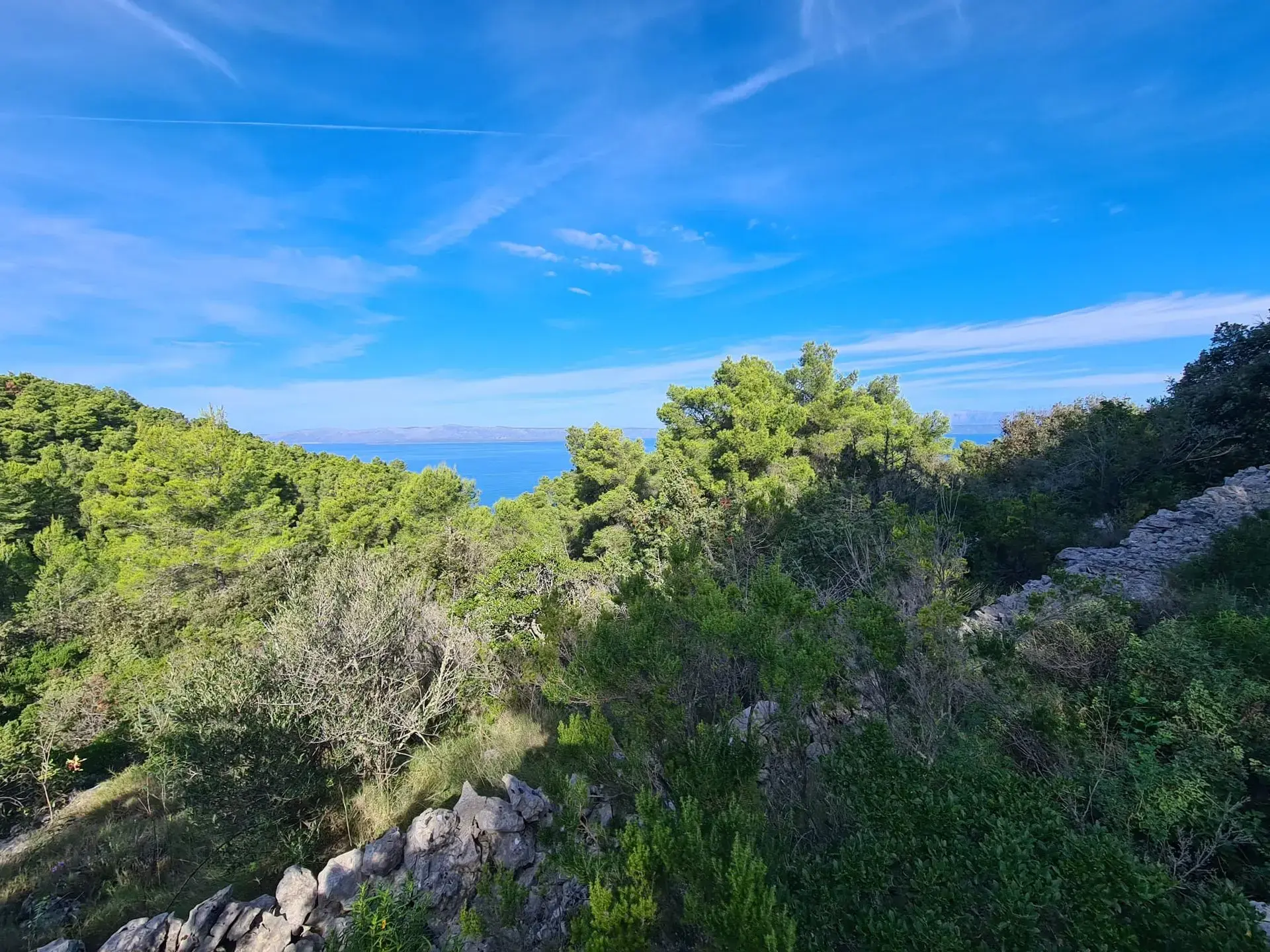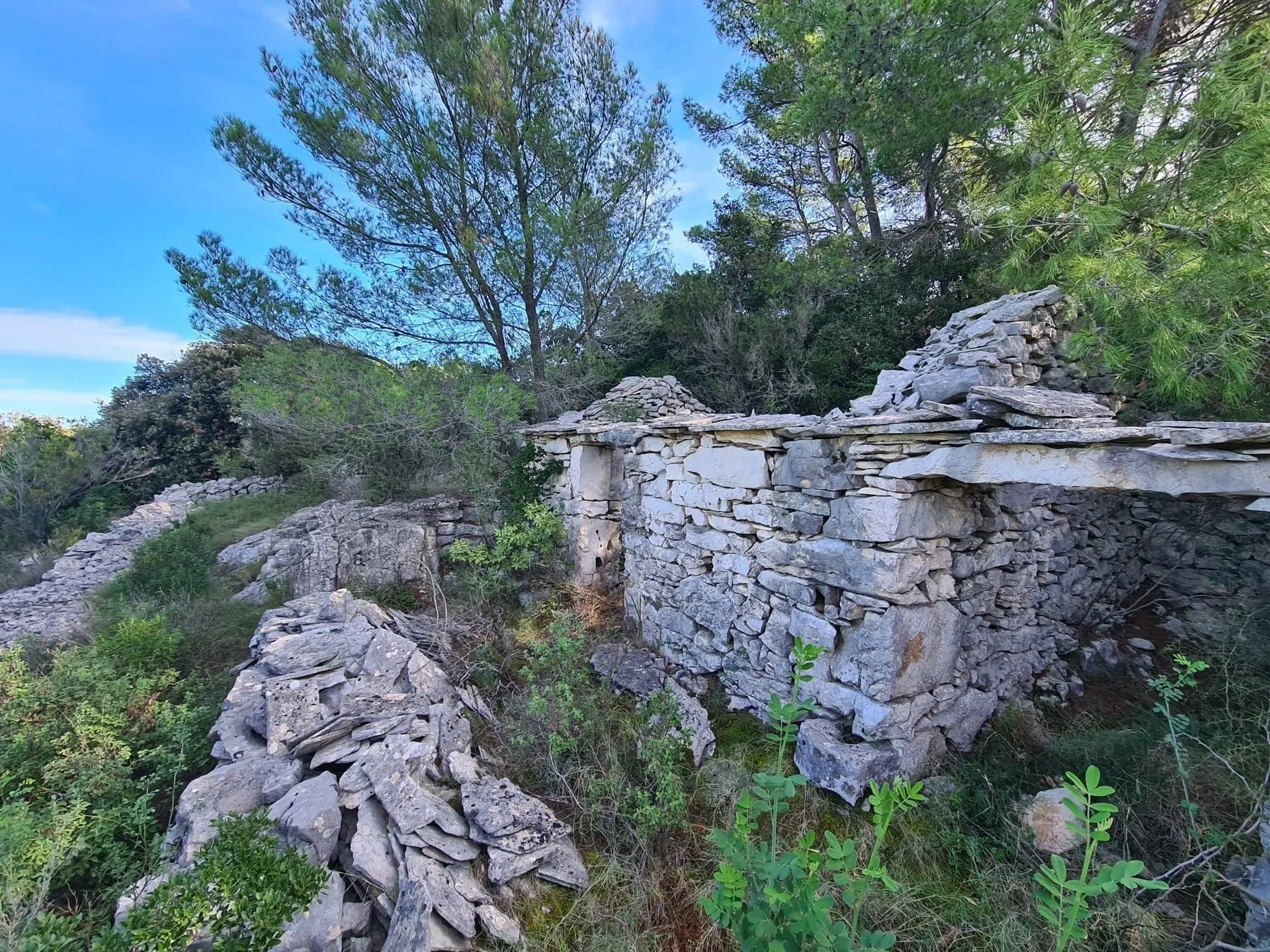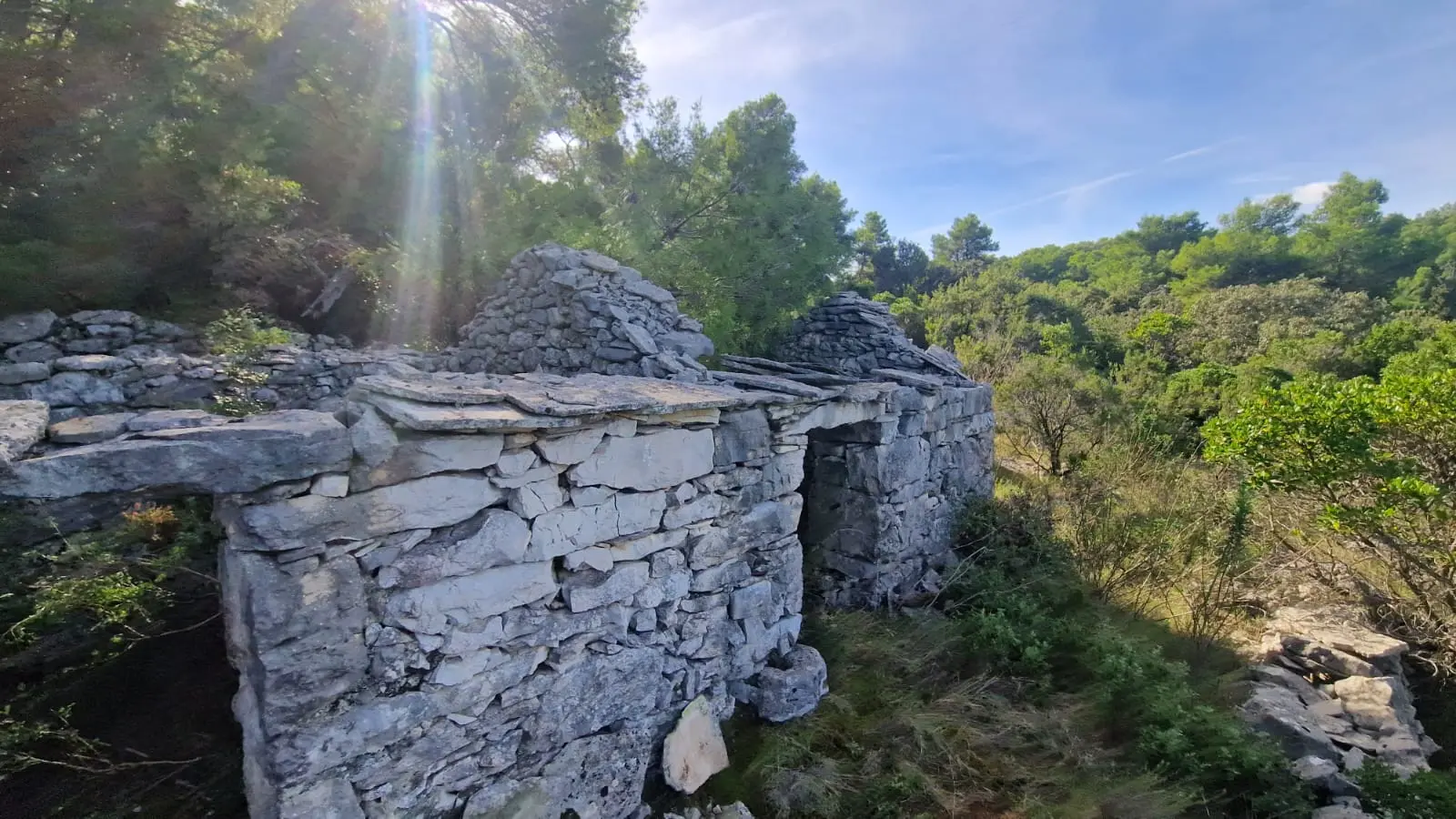Korčula is an island that has lived in harmony with olive trees, vineyards, and its stone landscape for centuries. Today, as global trends increasingly emphasize sustainability, authenticity, and a close connection with nature, the island stands out as an ideal platform for the development of agrotourism and premium agricultural projects. One of the finest examples of this potential is Spiliška – a 21,000 m² agricultural estate on the border of Blato and Vela Luka, surrounded by dry-stone walls and old olive trees, with sweeping views of the sea and the islands of Brač and Hvar.

Olives – a tradition that endures
The olive has always been a symbol of Dalmatia and Korčula. By restoring the existing trees and planting new ones, Spiliška can become a modern olive grove that blends tradition with contemporary cultivation. Olive oil from this area already carries a designation of origin, making it one of the Mediterranean’s most highly valued products.
Yet the olive grove at Spiliška can be more than production. It can become a place of experience: olive harvests transformed into seasonal events, oil elevated into a branded premium product, and the land itself turned into a stage where visitors encounter the Mediterranean in its most authentic form.

Medicinal herbs – immortelle and pyrethrum
Alongside olives, Spiliška offers exceptional conditions for cultivating medicinal and aromatic plants, particularly immortelle and pyrethrum. Immortelle, known as the “plant of eternal youth,” is increasingly sought after in luxury cosmetics and natural wellness products. Pyrethrum, on the other hand, is returning to the market as a natural insect repellent, in high demand in organic agriculture.
Planting such crops creates synergy with olive cultivation and opens the way to developing a unique brand that combines nature, health, and sustainability. One can envision a product line that blends olive oil and immortelle – from cosmetics to aromatherapy – positioning Spiliška as a model of modern agriculture focused on quality, authenticity, and global recognition.
 Agrotourism as an experience
Agrotourism as an experience
It is important to emphasize that Spiliška lies within an agricultural zone, where the construction of residential or tourist accommodation is not permitted. This, however, is part of its uniqueness. Instead of mass tourism, Spiliška can evolve as a destination of experiences: olive-harvesting workshops, immortelle distillation, tastings of oils and local products in a restored stone cottage, or walks among dry-stone walls and herb fields.
These are the experiences modern travelers seek – authentic, sustainable, and deeply connected with nature. They transform agriculture into a form of luxury increasingly valued on the global market.
Spiliška’s Price Positioning
The starting price of the land is €4 per square meter, positioning Spiliška very competitively compared with other Mediterranean olive-growing regions – especially considering its island location, sea views, existing dry-stone walls, and heritage olive trees.
Comparative benchmarks:
- Spain (Andalusia, Jaén): large inland olive estates are often offered at lower unit prices, but these are vast tracts far from tourism, without premium branding potential.
- Greece (Crete): smaller parcels near the coast and settlements frequently achieve higher single-digit to double-digit €/m² values, depending on access and location.
- Italy (Tuscany, Liguria, DOP regions): in protected and premium zones, prices are significantly higher, especially where land comes with branded groves and added value.
- Dalmatian islands (Brač, Hvar): agricultural parcels with sea views are often advertised at higher prices than Spiliška, particularly when close to towns and with favorable access.
Conclusion: At €4/m², Spiliška represents an attractive entry point. Compared with competing regions, it combines authenticity, location, and branding potential, making it not just a land purchase but a platform for developing premium products and experiential value.
Spiliška as a model for Korčula 2030
Spiliška perfectly embodies the vision of Korčula 2030 – an island developed through sustainable agriculture and high-value tourism. Its elements – olive groves, dry-stone walls, a stone cottage, and the potential for cultivating medicinal herbs – form the foundation for creating products and experiences aligned with global trends: organic production, the wellness industry, and sustainable luxury.
For investors, Spiliška represents an opportunity to create a brand that delivers both authenticity and exclusivity. For the community, it is an example of heritage transformed into sustainable development. For visitors, it is an invitation to experience the Mediterranean as it once was – and as the world is now seeking again.
Spiliška is not just agricultural land – it is a story, a brand, and a future.